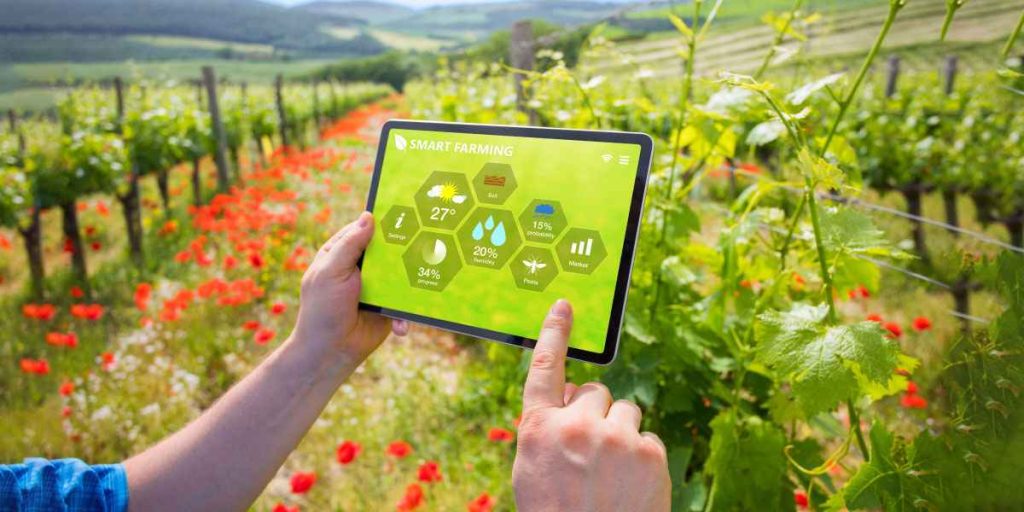Precision farming, often referred to as precision agriculture or smart farming, is a transformative approach that utilizes advanced technologies to optimize various aspects of agricultural practices. In recent years, the integration of Agricultural Technology (AgriTech) has played a pivotal role in shaping the future of agriculture. This article delves into the intricacies of precision farming, exploring its key components, benefits, challenges, and the overall impact it has on modern agriculture.

Understanding Precision Farming
Definition and Concept
Precision farming involves the use of technology to tailor farming practices based on data-driven insights. It employs a holistic approach, combining various technologies like GPS, sensors, automation, and data analytics to enhance decision-making processes in agriculture.
Evolution of Precision Farming
The roots of precision farming can be traced back to the 1980s, with the advent of GPS technology. Over the years, it has evolved with the integration of advanced sensors, robotics, machine learning, and the Internet of Things (IoT). The synergy of these technologies has paved the way for a more efficient and sustainable agricultural system.
Key Components of Precision Farming
Global Positioning System (GPS)
GPS technology is a cornerstone of precision farming. It enables accurate mapping and tracking of field activities, allowing farmers to optimize the use of resources such as water, fertilizers, and pesticides. GPS also facilitates the development of precision maps, guiding farmers in making informed decisions.
Sensors and Internet of Things (IoT)
Sensors play a vital role in collecting real-time data from the field. These sensors, often deployed on machinery or in the soil, provide information on soil moisture, temperature, nutrient levels, and crop health. The IoT connects these sensors, creating a network that enables seamless communication and data sharing.
Automation and Robotics
Automation and robotics have revolutionized various tasks in agriculture, from planting and harvesting to weeding and pest control. Automated machinery ensures precision and efficiency in operations, reducing the reliance on manual labor and increasing overall productivity.
Data Analytics and Artificial Intelligence (AI)
The massive amount of data generated by precision farming technologies is analyzed using advanced data analytics and AI algorithms. This analysis helps in identifying patterns, predicting crop yields, optimizing resource allocation, and making data-driven decisions to enhance overall farm management.
Benefits of Precision Farming
Increased Efficiency and Productivity
One of the primary advantages of precision farming is the significant increase in efficiency and productivity. By leveraging technology to optimize resource use and reduce waste, farmers can achieve higher yields with minimal environmental impact.
Resource Optimization
Precision farming enables precise control over resources such as water, fertilizers, and pesticides. By tailoring application rates based on real-time data, farmers can minimize waste and environmental pollution while ensuring that crops receive the necessary inputs for optimal growth.
Cost Reduction
Efficient resource use directly translates to cost savings for farmers. Precision farming minimizes input costs, as farmers can avoid over-applying expensive inputs like fertilizers and pesticides. Additionally, the reduction in manual labor through automation contributes to cost savings.
Sustainable Agriculture Practices
The emphasis on resource optimization and reduced environmental impact makes precision farming a key player in promoting sustainable agriculture. By minimizing the ecological footprint of farming activities, precision farming contributes to the long-term health of the environment and ecosystems.
Improved Crop Quality
Precision farming allows for better monitoring and management of crop health. Timely detection of diseases, pests, or nutrient deficiencies enables farmers to take corrective measures promptly, resulting in improved crop quality.
Challenges in Implementing Precision Farming
Initial Investment
While the long-term benefits of precision farming are substantial, the initial investment can be a barrier for some farmers. Acquiring and implementing advanced technologies may require a significant upfront cost, which can be challenging for small-scale farmers or those with limited financial resources.
Technical Expertise
Successfully implementing precision farming practices requires a certain level of technical expertise. Farmers need to be trained in the use of complex technologies such as GPS, sensors, and data analytics. Lack of access to training and support can hinder the widespread adoption of precision farming.
Data Security and Privacy Concerns
The collection and analysis of large amounts of data raise concerns about data security and privacy. Farmers may be hesitant to share sensitive information about their operations, fearing potential misuse or unauthorized access. Addressing these concerns is crucial to building trust in precision farming technologies.
Compatibility and Standardization
The integration of various technologies in precision farming often leads to compatibility issues. Lack of standardization can make it challenging for farmers to seamlessly use different tools and systems. Establishing industry-wide standards is essential to promote interoperability and ease of use.
Case Studies and Success Stories
Case Study 1: Precision Planting in the United States
Precision planting technologies, including GPS-guided planters and automated seeding systems, have been widely adopted in the United States. Farmers using precision planting techniques report increased yields, reduced input costs, and improved overall farm efficiency.
Case Study 2: Precision Livestock Farming in Europe
In Europe, precision farming extends beyond crop cultivation to include precision livestock farming. Sensors and monitoring devices are used to track the health and well-being of livestock. This approach has led to improved animal welfare, increased milk production, and optimized feed utilization.
The Future of Precision Farming
Emerging Technologies
The future of precision farming holds exciting possibilities with the emergence of new technologies. Drones equipped with sensors and AI, satellite imagery, and blockchain technology for transparent supply chains are among the innovations that are expected to further revolutionize agriculture.
Integration of Blockchain for Transparency
Blockchain technology has the potential to enhance transparency in the agricultural supply chain. By creating an immutable and decentralized ledger, blockchain can provide a secure platform for recording and verifying transactions, ensuring traceability and authenticity from farm to consumer.
Climate Smart Precision Farming
As climate change poses challenges to traditional farming practices, precision farming is evolving to become climate-smart. Adaptive technologies that respond to changing weather patterns, along with predictive modeling for climate-resilient crops, will play a crucial role in ensuring food security in the face of climate variability.
Conclusion
Precision farming, powered by AgriTech, has emerged as a game-changer in modern agriculture. The integration of technologies such as GPS, sensors, automation, and AI has paved the way for more sustainable, efficient, and productive farming practices. While challenges exist, the benefits of precision farming in terms of increased productivity, resource optimization, and sustainability are undeniable. As the agricultural industry continues to evolve, precision farming is expected to play a central role in shaping the future of food production worldwide.






